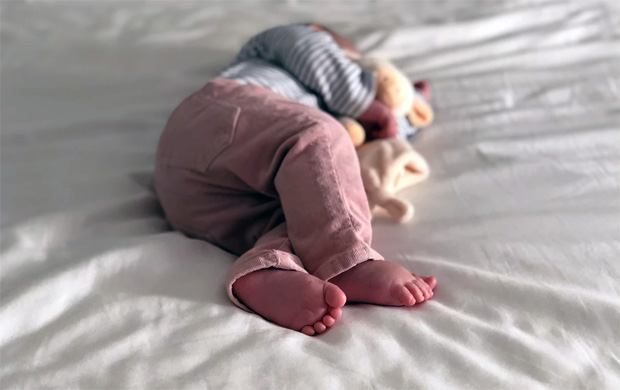The Importance of Sleep in Childhood

The Importance of Sleep in Childhood
The repercussions of a poor sleep health can be immense. Increased body weight, diabetes, heart problems, stress, and a lack of concentration are just some of the risks that sleep deprivation brings along with it. However, in the case of children, the risks seem even more worrisome because they are linked with the proper growth and development of a child both physically and mentally. According to this extensively collected data on sleep requirements of kids, newborn babies require no less than 14 to 17 hours of sleep on a daily basis. Even infants which fall in the age group of 4 to 12 months tend to sleep for 12 to 15 hours a day. So, what makes sleep so important in childhood that about half the day is spent in this activity? We are going to find out just that in this carefully constructed piece on child sleep.

1) Effect on Brain Development
The nerve connections inside a child’s brain grow rapidly in the early ages which is why sleep is linked with the early development of brain. Development in the cognitive and psychosocial departments have been prominently observed by researchers in the transitional stages from infancy to childhood. The rapid eye movement (REM) phase in children helps them in further enhancing these neural connections, consolidating memory, and dreaming. The non-rapid eye movement (nREM) phase on the other hand which experiences reduced brain activity, is crucial for providing restorative sleep and regulating emotions.
2) How Sleep Affects Speech
A great body of studies suggest that a proper sleep health is paramount for the growth of the cognitive and linguistic faculties of a child. A group of researchers from the University of Louisville studied 32 children in the age group of 6 to 7 years and found that sleep loss of even one hour was enough for a child to fail at proper phonetic coding of different speech sounds. Parents therefore need to be extra cautious with the changing patterns and sleep requirements of their kid as they grow because failing to achieve the required amount of sleep can be detrimental to the development and functioning of cognitive abilities and those of speech perception.

3) The Link between Sleep and Academic Results
In the past few years, there has been a large number of studies conducted on finding a link between the academic performance and sleep health of a child. According to one such study published in the journal Nature, students who had a better consistency of sleep and longer duration were also found to score better grades. However, the effect on academic achievement based on the sleep attained on the night before exam was comparatively less which is why parents must strive towards establishing a sleep routine that is beneficial for long term. Factors like impaired memory, reduced attention, slower analyzing ability, and reduced creativity, among others, are responsible for this poor performance.
4) The Effect on their Behavior
Children who gain less sleep than what they require can be often found to experience a foul mood. Not only can they turn out to be easily irritated but may also show signs of aggressive nature. A study published in the journal of the National Library of Medicine found that school aged children who had irregular sleep patterns displayed aggressive behavior and emotional distress. Conditions like stress and anxiety which are normally associated with sleep problems in adults, also find their way to children and further deteriorate the previously mentioned factors.

Taking care of their sleep
Your child’s development is as important to us as it is to you. Therefore, we wouldn’t just mention the importance of maintaining a good sleep quality and quantity without actually relating the tips and tricks to achieving them.
- Fix a proper bedtime routine so that your child can go to sleep and wake up naturally every day at the same time.
- Incorporate a bedtime ritual which may include activities like brushing teeth, bathing, reading a story, singing a lullaby, etc., so that your child’s mind anticipates the onset of the sleeping time.
- Keep your child away from activities that can overly stimulate its brain or cause a disruption in its sleep such as bright lights, external noise, intense playing before bedtime, etc.
- Swaddling is considered one of the top tips to help your newborn sleep better at night, especially when it comes to reducing the risk of sudden infant death syndrome (SIDS). Avoid crowding your baby’s crib with unnecessary items that possess the risk of choking.
- Last but not the least, take care of your own sleep health too and try to squeeze in as many naps as possible throughout the day. Taking care of your own sleep health will after all impact how well you are able to attend to your child’s sleep requirements.
Bottom line
Watching your child sleep peacefully is one of the most cherished moments of parenthood. We hope that the above mentioned points will help you fully understand the true potential of a good sleep health so that your child can develop in the perfect way possible.
Guest Article. Contains a sponsored link.




